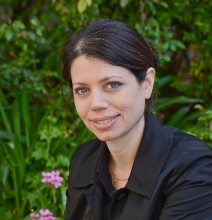Scientific Program

Ofra Benny
The Hebrew University, Israel
Title: Tumor-on-chip and nanofabrication for precision medicine in cancer
Biography:
Ofra Benny is the head of The laboratory for Nanomedicine and Tumor Microenvironment at the Institute for Drug Research, School of Pharmacy, and Faculty of Medicine in the Hebrew University. Prof. Benny’s lab focuses on cancer research and drug development. Her multidisciplinary lab works on developing novel nanomedicine tools for drug delivery specific for cancer and key components of the tumor microenvironment. Prof. Benny received her P.hD in Biotechnology Engineering from the Technion, and completed her postdoctoral in the leading lab of the late Prof. Judah Folkman, in the Boston Children’s Hospital, Harvard Medical School. Prof. Benny has several publications including in Nature Biotechnology and Science Advances. Her ERC funded project Mtrix introduced a novel concept in mechanical targeting of cancer cells by nanomaterials and is expected to lead to innovations in the field of personalized therapy in cancer. The project involves “tumor on chip” and microfabricated drug vehicles using 3D printed devices.
Abstract
The overwhelming complexity of biological systems emphasizes the need to develop experimental models that are more physiologically relevant for testing drugs outside the body (ex-vivo), than those currently available. There is an unmet need to develop a predictive and reliable tools to evaluate the effectiveness of anti-cancer drugs. Such “oracle” could eliminate the loss of valuable time on treatment with ineffective drugs, and avoid the unnecessary suffering of cancer patients. Using microfluidics, we developed a “tumor on chip” system to maintain physiological like conditions, including the presence of components of the tumor microenvironment. In this system cancer cells are grown as 3-dimension spheroids so that their cell-cell and cell-matrix interactions resemble those found in the original tumor. Patient derived samples are grown and are exposed to various treatments to measure efficacy. Our preliminary data show that genetic profile of ex-vivo samples resemble the original tissue, and even provide a selection for rare mutations.
- Cancer-on-a-Chip, Metastasis-on-a-Chip
- 3D-Culture and Organoids
- Microfluidics/Lab-on-a-Chip (LOAC) Technologies for Constructing Organ-on-a-Chip/Tissue-on-a-Chip/Body-on-a-Chip
- Organ-on-a-Chip Applications for Drug Discovery

